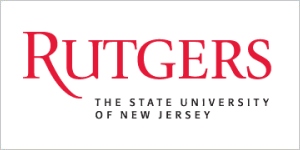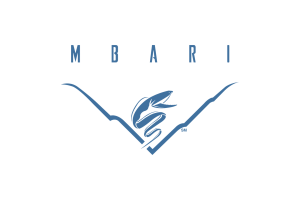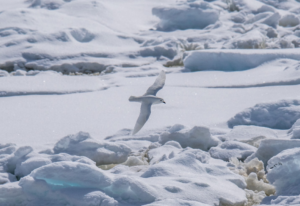The Polar-ICE Project
Grant No. PLR-1525635 (2015-2019)
This grant’s mission was to connect Polar scientists with broader audiences to further the impact of their research, while connecting educators and students with data and cutting edge science. We focused on engaging students in understanding how Polar Regions influence our lives while improving our understanding of how scientists work to understand a changing climate system. Project partners included:
Project Team
The Polar-ICE team was led by a collaborative team of ocean scientists and educators working together to advance polar science literacy
Oscar Schofield: Project PI, Dr. Schofield is a Biological Oceanographer at Rutgers University, PI for the NSF Long-term Ecological Research Program at Palmer Station, and Co-Director of the Center for Ocean Observation Leadership (COOL) at Rutgers University.
Janice McDonnell: Co-PI and Project Director, Janice is a marine educator and former Director of the Center for Ocean Science Education Excellence Network Ocean World at Rutgers University Department of Youth Development, Marine & Coastal Sciences. She co-coordinates professional development opportunities for scientists as well as consults and assists polar scientists in writing effective broader impact statements addressing Criterion II of NSF proposals.
Josh Kohut: Co-PI, Dr. Kohut is a Physical Oceanographer at Rutgers University. Josh led a previous NSF funded project called CONVERGE which served as a model for the Polar-ICE program.
Christine Bean was a project coordinator for Polar ICE. As the former Director of Education at Fernbank Museum of Natural History, Christine brought extensive experience with informal science centers and museum learning.
The project team also included the following working groups:
Science Communication Workshops for Polar Scientists
Corey Garza: Dr. Garza, California University Monterey Bay, is an expert in cultural competency and mentorship of underserved and underrepresented students in getting in the ocean sciences.
Joan Middendorf: Dr. Middendorf, Indiana University, is an expert in assisting scientists in learning ways of delivering science content to be most effective for audiences by moving from communicating to an expert to a novice.
Ari Daniel: Dr. Daniel, Mind Open Media, LLC, is an expert in telling stories about science through radio and multimedia.
Polar-ICE/MBARI EARTH Teacher Workshops
George Matsumoto: Dr. Matsumoto, Monterey Bay Aquarium Research Institute, is a research scientist and lead educator, as well as the creator of the EARTH professional development program for K-12 educators.
Sci-I (Science Investigation) Project & Student Research Symposiums
Kristin Hunter-Thomson: Kristin coordinated professional development opportunities for grades 6-16 educators interested in bring polar data and the process of science to their students. Kristin also developed the polar data stories.
Jacoby Baker is a graduate student at California University Monterey Bay and is helping to coordinate the Sci-I program.
Teacher Workshops, Conferences, and Webinars
Liesl Hotaling: Liesl, Eidos Education, is an educational consultant and expert in STEM professional development training. She reaches out to broader audiences of formal and informal educators through professional meetings, workshops and webinars.
Polar-ICE Evaluation
Pam Van Dyk: Dr. Van Dyk, Evaluation Resources, LLC, is an independent consultant and evaluator for Polar-ICE. She is developing and implementing evaluation studies designed to assess the impact of education, outreach, and science communication Polar-ICE programs.
Project Partners
 |
Rutgers is the state university of New Jersey with more than 65,000 students from all 50 states and more than 115 countries—including 45,059 undergraduates and 20,267 graduate students. Diversity Inc. ranks Rutgers among the nation’s top five higher education institutions for commitment to diversity. In the 2013 first year class, more than half identified themselves as nonwhite. |
| The Department of Marine and Coastal Sciences (DMCS) is a multidisciplinary organization of oceanographers with a research focus on interdisciplinary approaches to ocean science research. DMCS has four major field stations throughout the state, and many special programs including the Jacques Cousteau National Estuarine Research Reserve (JC NERR) and a Research Experience for Undergraduates (REU) program. | |
| Rutgers New Jersey Agricultural Experiment Station (NJAES) Cooperative Extension helps the diverse population of New Jersey adapt to a rapidly changing society and improve their lives and communities through an educational process that uses science based knowledge. Through science-based educational programs, Rutgers Cooperative Extension brings the wealth of knowledge of the state university to local communities. | |
 |
California State University Monterey Bay is a public university in the 23-campus California State University system, that serves more than 7,000 students just one mile from the shores of the beautiful Monterey Bay. Their diverse student body receives personal attention in small classes while pursuing degrees in 25 undergraduate and seven graduate majors. |
 |
Monterey Bay Aquarium Research Institute is a non-profit oceanographic research center whose mission is to achieve and maintain a position as a world center for advanced research and education in ocean science and technology. |
 |
Eidos Education designs and provides high quality professional development programs for educators, innovative curricula, and applications of technology in education. Their mission is to improve science, technology, engineering and mathematics (STEM) teaching and enhance STEM learning opportunities for K-20 students. |
| Ari Daniel is the Senior Digital Producer at NOVA and a science reporter. | |
 |
Indiana University Bloomingtonis a public research university located in Bloomington, Indiana, United States. With over 40,000 students, IU Bloomington is the flagship institution of the Indiana University system and its largest university. |
| Evaluation Resources, LLC was established in 1996 in Raleigh, North Carolina. Our primary mission is to encourage the use of education research and program evaluation as a capacity building tool that allows organizations to find new opportunities, see existing resources in a new light, make better organizational decisions, and redefine programs in response to client needs. |


